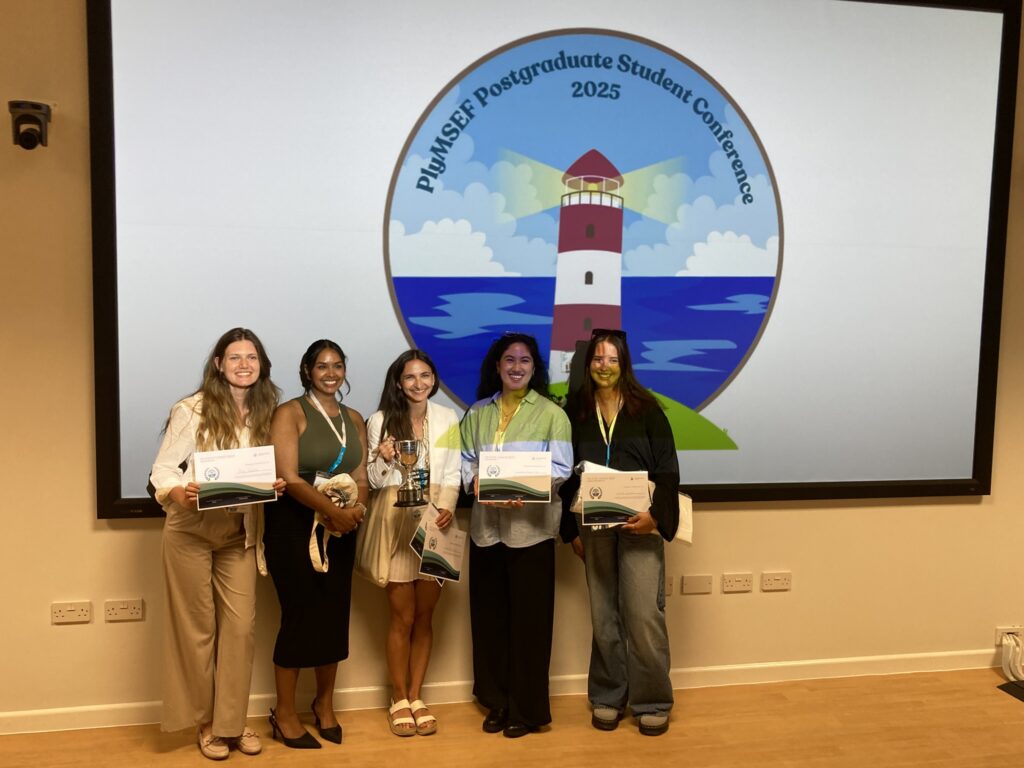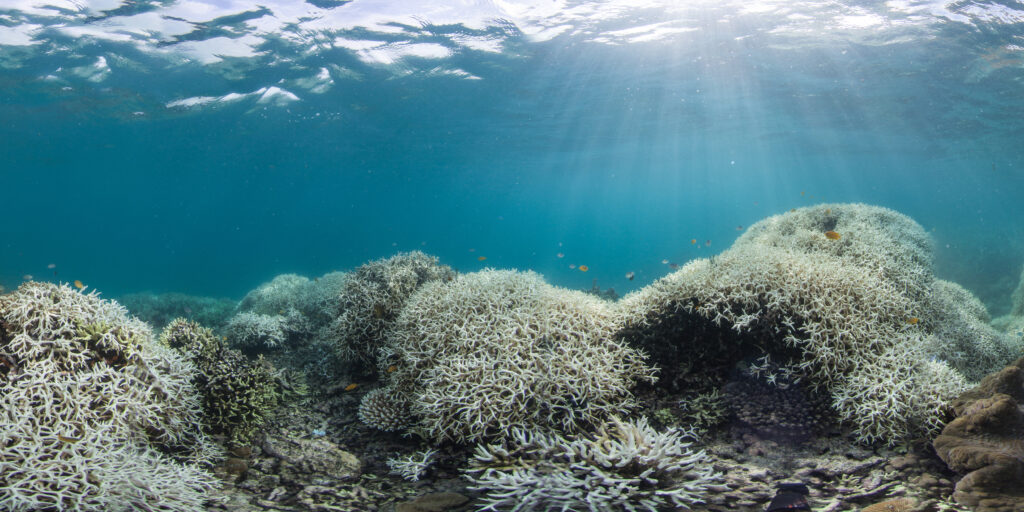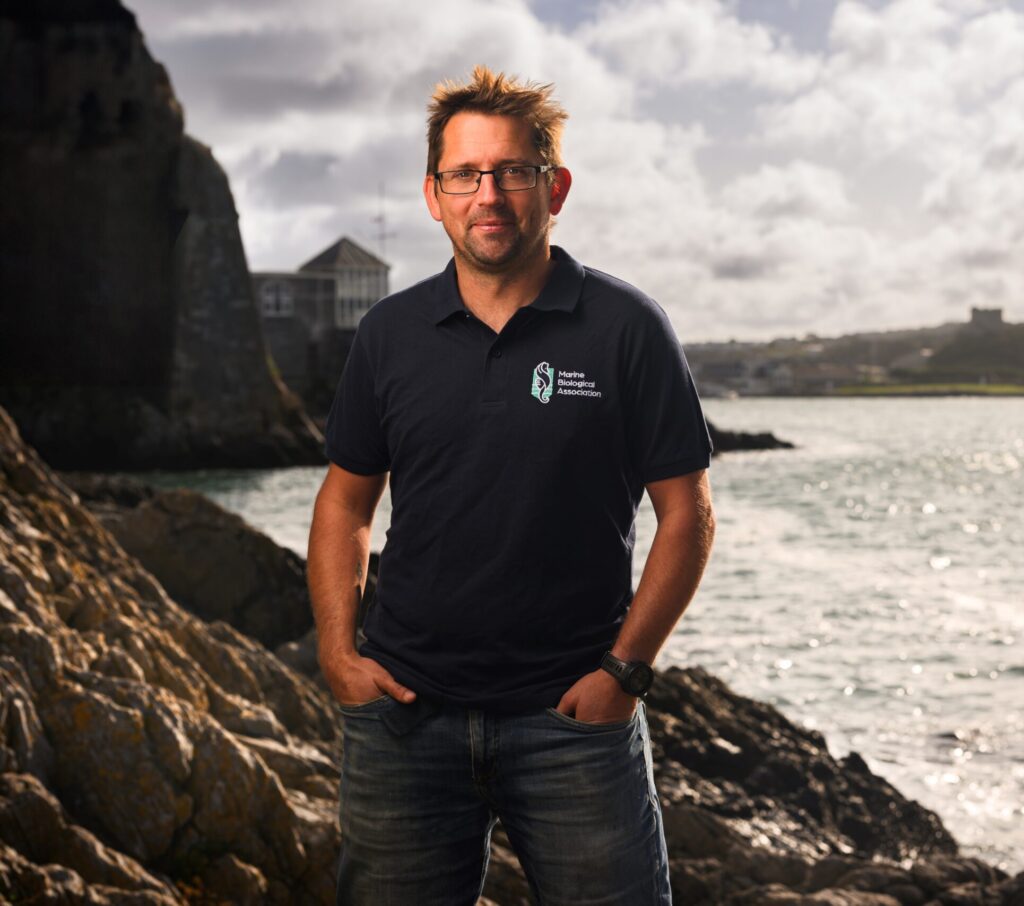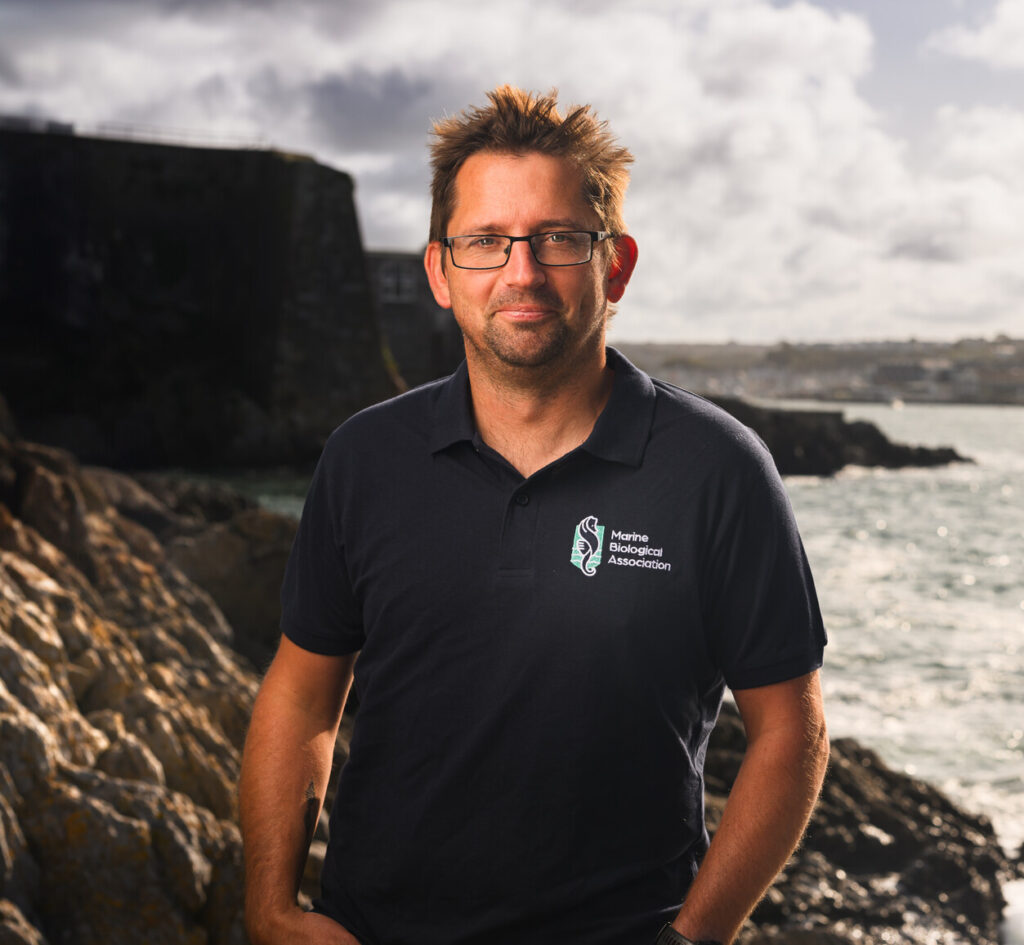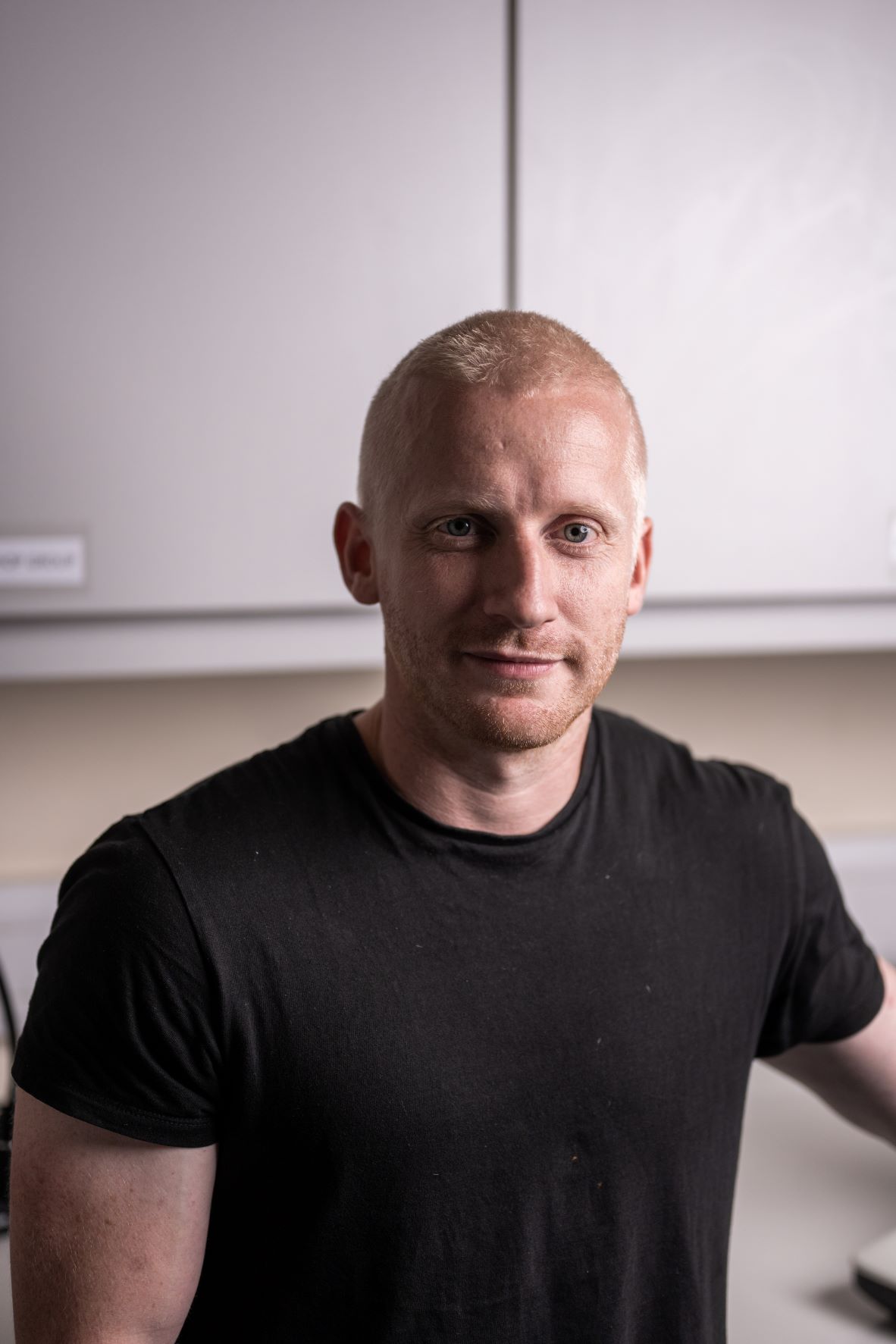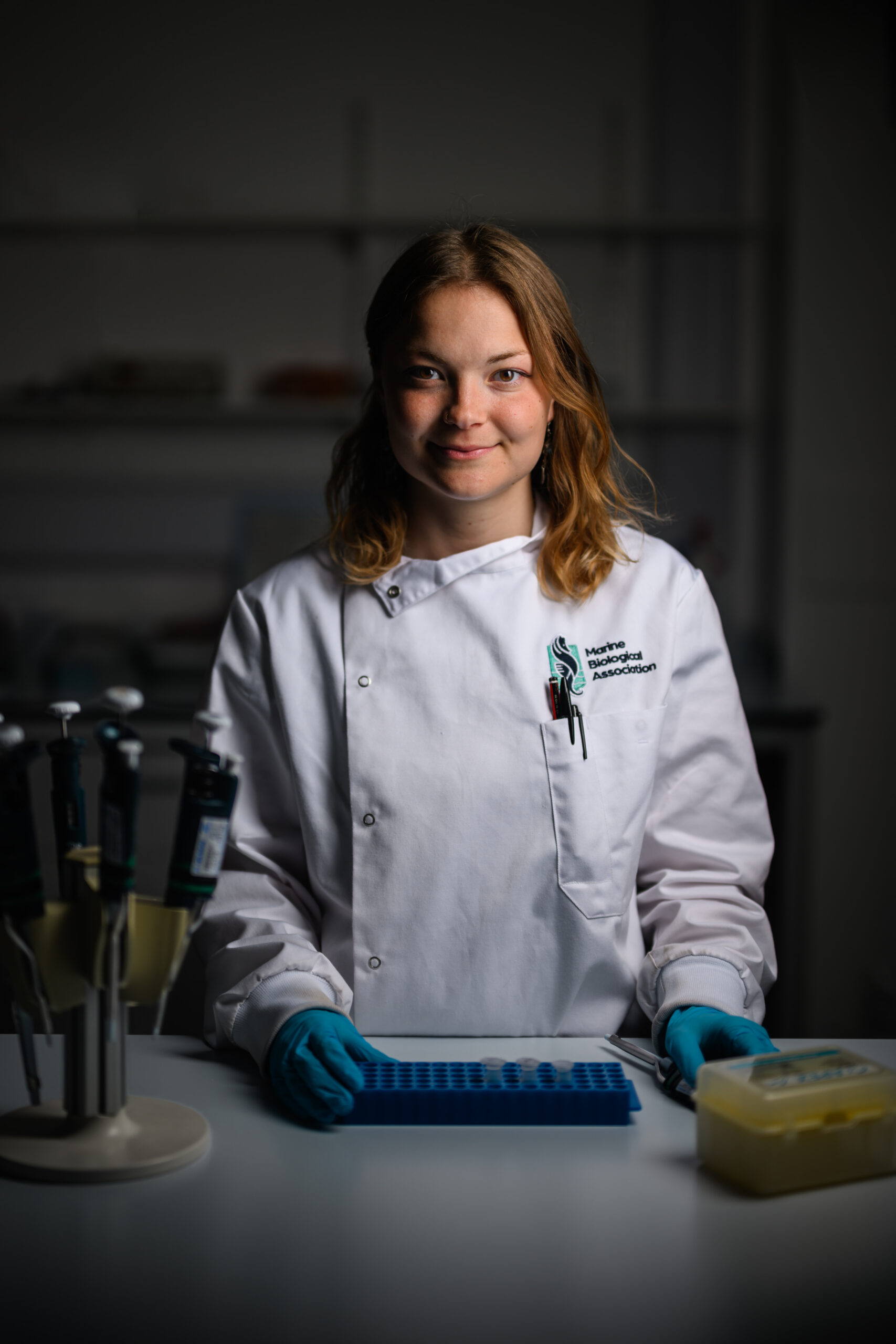Benthic Ecosystems
And Environmental Change
Research Lead – Dr Dan Smale
We study the structure and functioning of coastal marine ecosystems across a range of spatial and temporal scales, to better understand how marine life is responding to rapid environmental change. We adopt a range of approaches – including field surveys, laboratory experiments and molecular techniques – to investigate ecological patterns and the mechanistic processes driving them.
Our research focusses on vital coastal habitats such as kelp forests and seagrass meadows and the effects of contemporary stressors, including ocean warming, marine heatwaves, invasive species and coastal water quality. We work across local to global scales to inform approaches to management, conservation and adaptation.
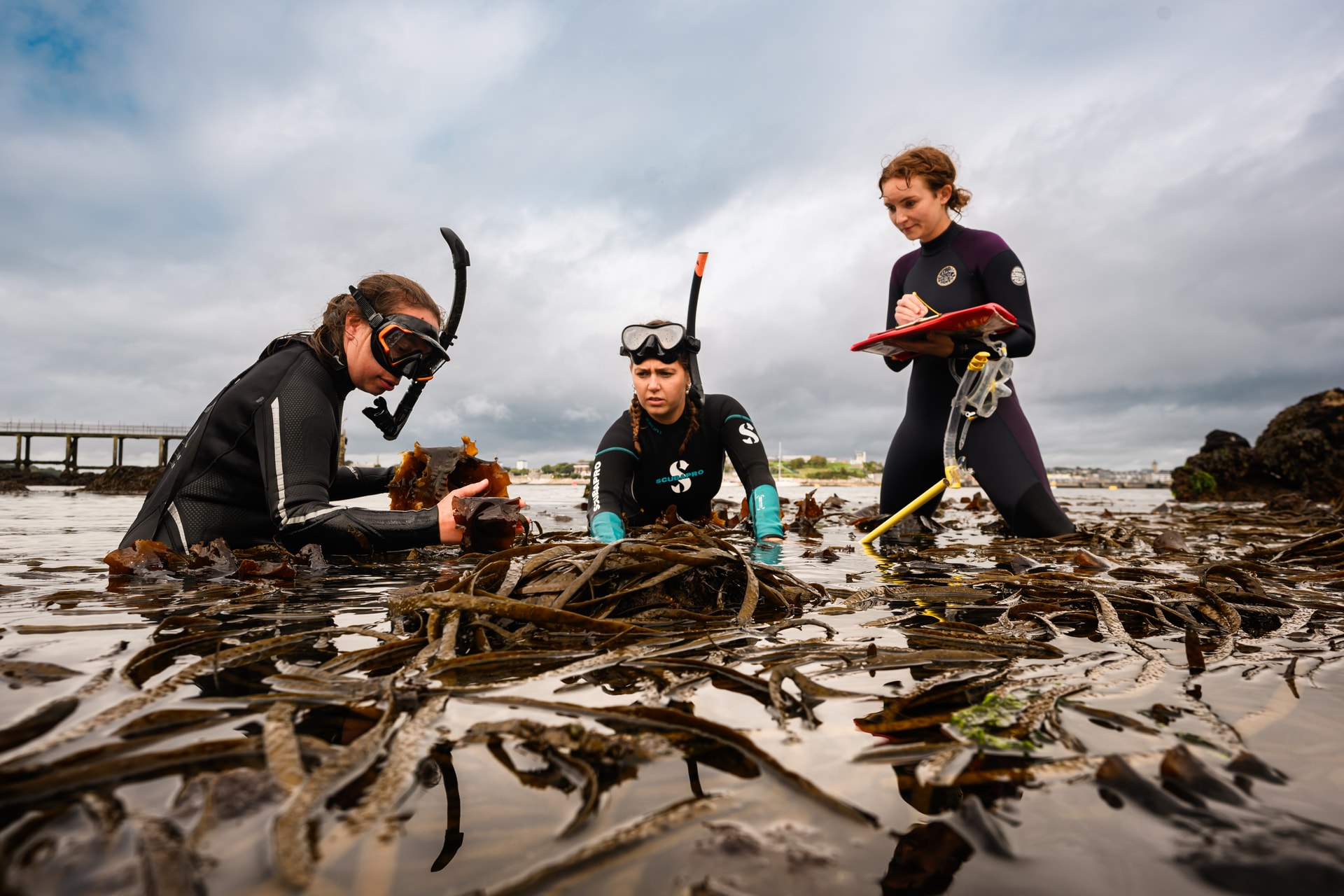
Our Research Impacts
Marine Heatwaves
Research by our group and our international collaborators has highlighted the importance of extreme warming events – or ‘marine heatwaves’ – in driving ecosystem changes. The definition we proposed has been widely adopted by academic and policy communities, including the Intergovernmental Panel on Climate Change (IPCC), and our impact studies have informed management and conservation activities.
Our applied research, in collaboration with small aquaculture companies, has developed and tested new approaches to seaweed farming, and has examined the ecological and societal benefits of kelp farming in the UK. This work has facilitated the growth of the emerging industry while ensuring sustainability standards are maintained.
Key Publications
Latest Projects
Green Gravel Action Group
We are involved in the Green Gravel Action Group that aims to develop tools for kelp restoration.
Marine Heatwaves International Working Group
Dr Dan Smale co-leads an international working group on marine heatwaves.
Latest News
Our Team
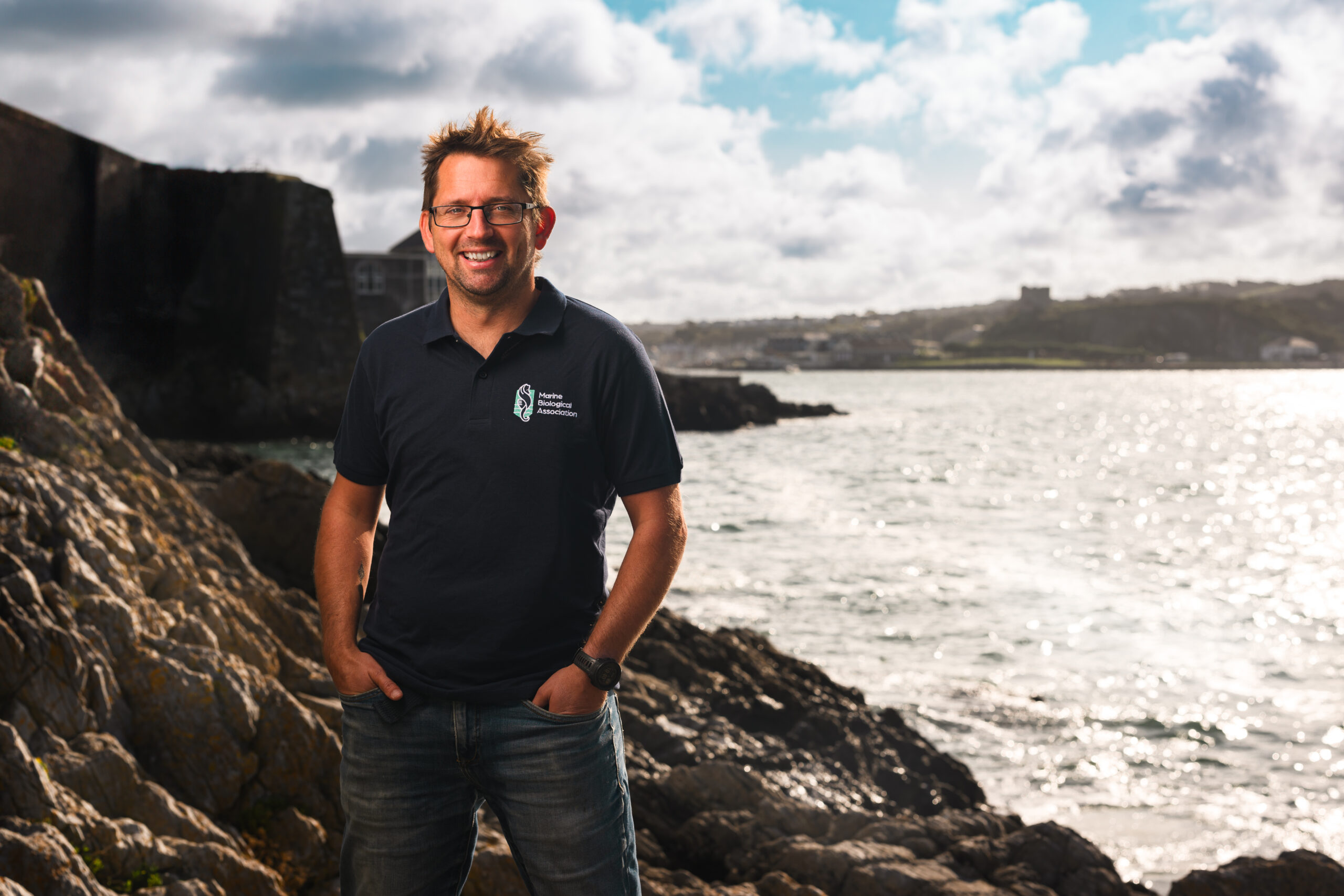
Dr Dan Smale
Senior Research Fellow
Dr Dan Smale
Senior Research Fellow
I am a community ecologist with a particular focus on how global environmental change is influencing the biodiversity, structure and functioning of marine ecosystems. I have worked extensively on kelp forest ecosystems across Europe, Australia and South America, and used a combination of field observations and manipulative experiments to better understand processes that shape them. My research has demonstrated (i) the importance of kelps as habitat-forming species and determinants of local biodiversity, (ii) the responses of kelp forest communities to both long-term gradual climate change and extreme climatic events, and (iii) patterns and drivers of kelp forest structure and productivity. I have also led recent advances in characterising physical properties and ecological impacts of short-term extreme warming events (i.e. ‘marine heatwaves’), which are emerging as important drivers of marine ecosystem change and are likely to intensity with anthropogenic climate change. Recently, I have collaborated with industry and government partners to conduct applied research to support the emerging seaweed industry. I am a UKRI Future Leaders Fellow and lead a vibrant and productive research group at the MBA.
Research Group: Benthic Ecosystems and Environmental Change
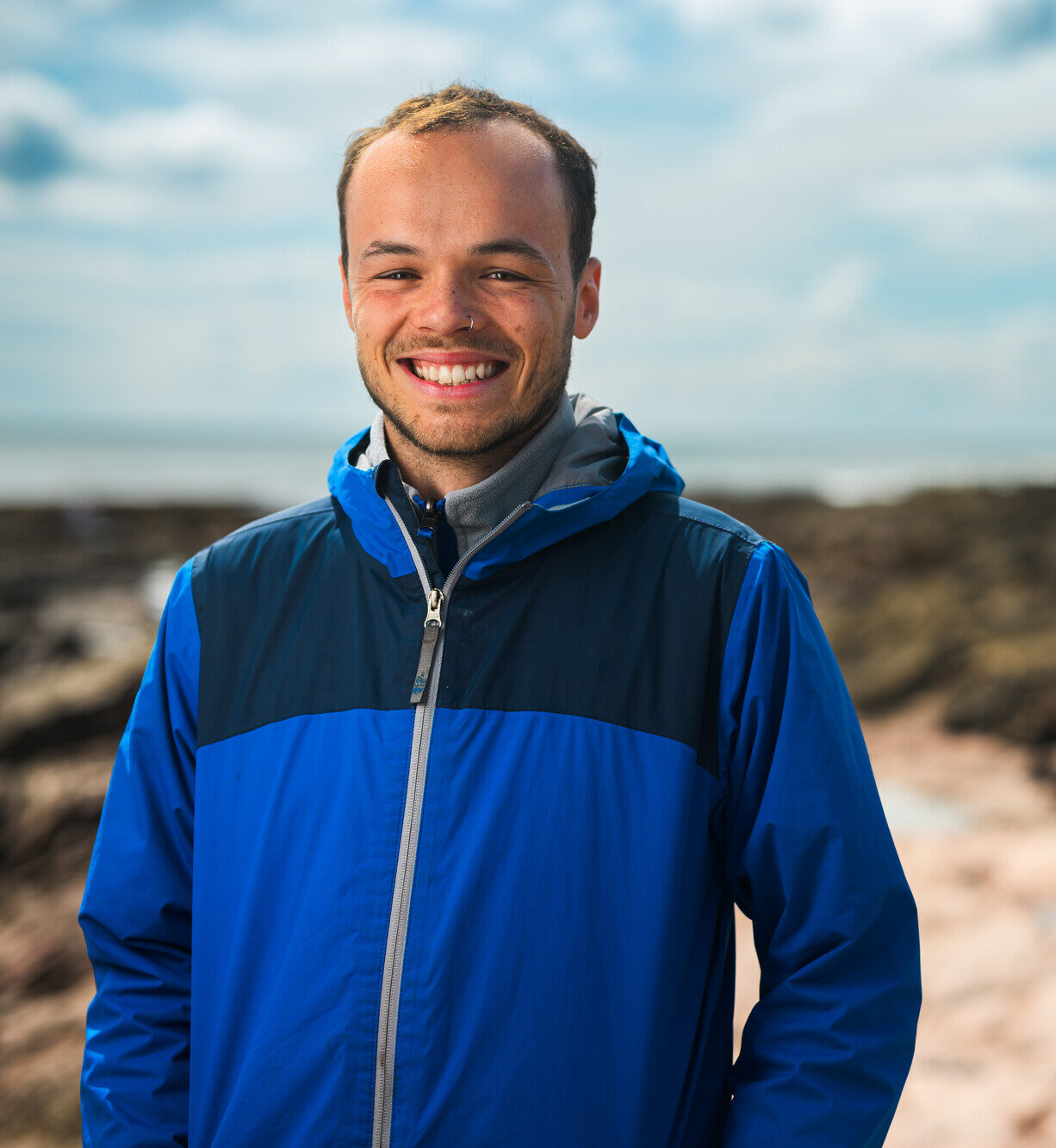
Fraser Brough BSc, MRes
Research Assistant
Fraser Brough BSc, MRes
Research Assistant

frabro@mba.ac.uk
My role as a research assistant within Dr Dan Smale’s group involves supporting the science through assisting with scientific diving operations, rocky shore surveys and laboratory processing of benthic marine samples. I graduated from the University of Plymouth with an MRes in Applied Marine Science where my project focused on the impact of Artificial Light at Night on the larval development of benthic marine organisms. All aspects of the ocean fascinate me and maintaining my 200L reef tank is one of my favourite hobbies that allows me to enjoy watching coral and fish at home
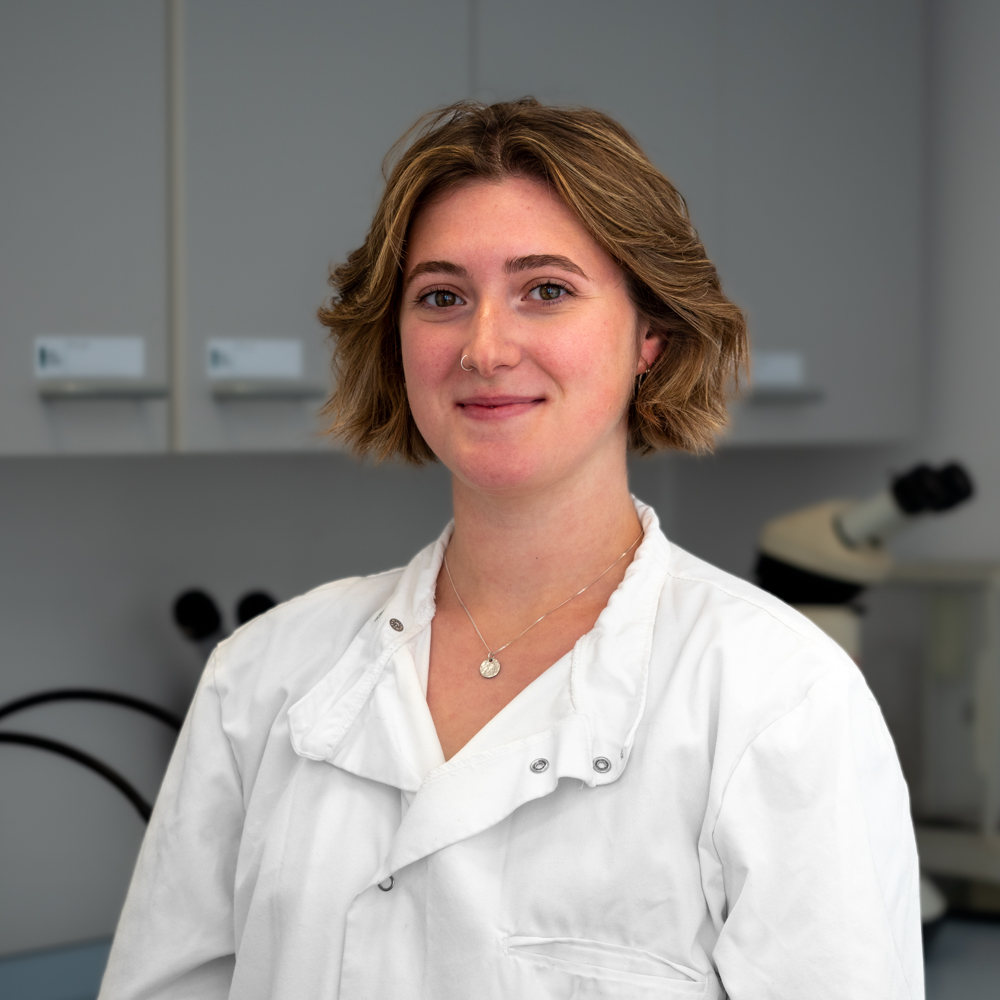
Maxine Canvin BSc, MRes.
PHD Student
Maxine Canvin BSc, MRes.
PHD Student

maxcan@mba.ac.uk
I am a PhD student funded by WWF, working with Prof. Pippa Moore (Newcastle University) and Dr. Dan Smale (MBA). The project aims to quantify the contribution of kelp farming to Blue Carbon ecosystem services. This will involve determining rates of particulate and dissolved organic carbon loss and quantifying kelp-derived carbon in sediments in and around kelp farms. A variety of techniques will be applied, including lead dating, stable isotope analysis and eDNA, as well as closely working together with kelp farms in the UK to develop protocols for cost-effectively monitoring carbon sequestration. Previously, I studied BSc Marine and Freshwater Biology at Aberystwyth University, completing my dissertation on the effect of ecologically realistic marine heatwaves on kelp and kelp associated species under the supervision of Prof. Pippa Moore. Following this, I graduated from the MRes Marine Biology programme at Plymouth University. Here, supervised by Dr. Antony Knights, I characterised dispersal of kelp species associated with the UK to better understand patterns connectivity using a particle-tracking model.
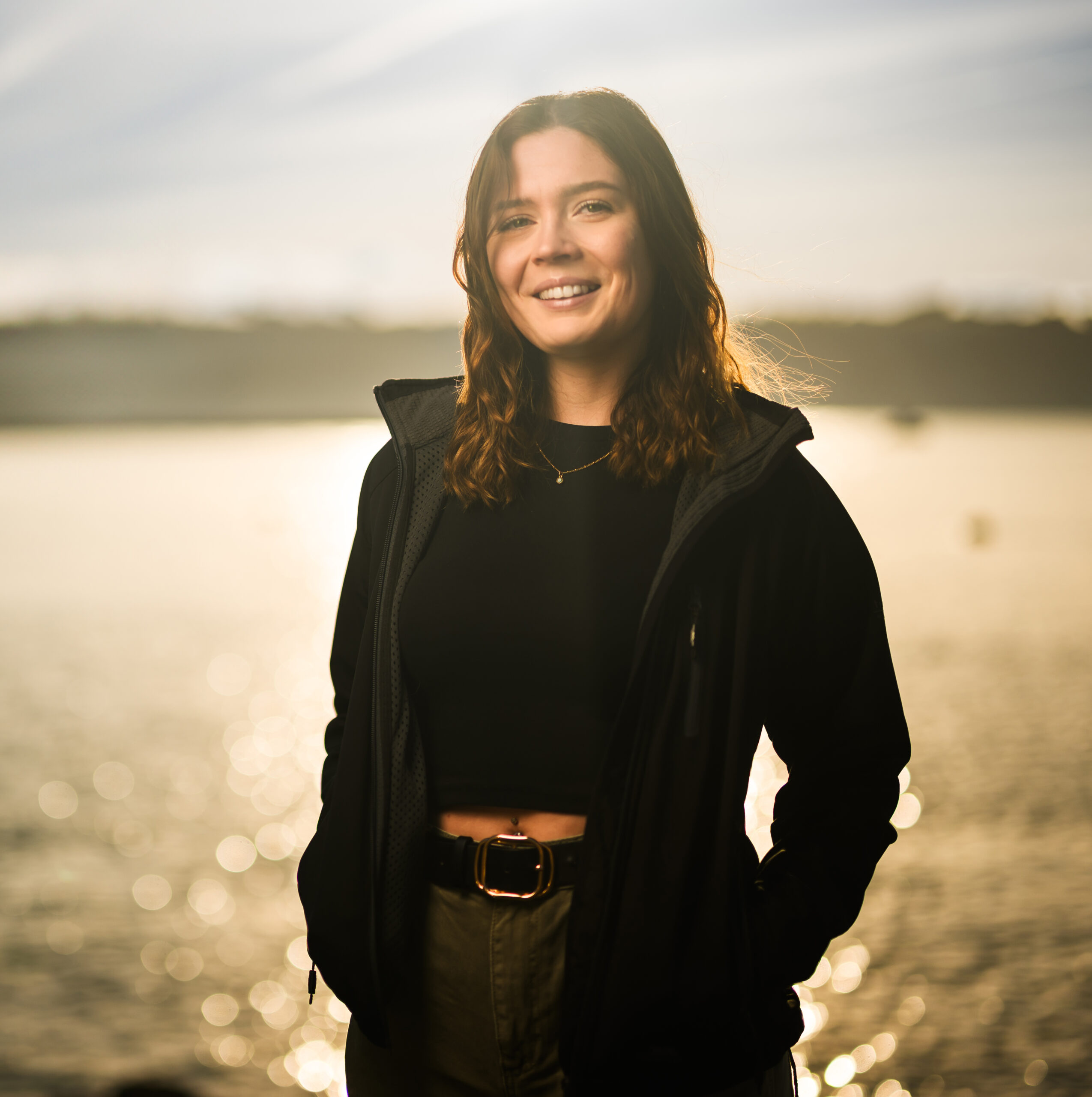
Jasmine Ramshaw BSc, MSc
PhD Student
Jasmine Ramshaw BSc, MSc
PhD Student

jasram@mba.ac.uk
I am a first year PhD student researching the ecosystem services provided by seaweed aquaculture. This is a CDT SuMMeR studentship run jointly through the MBA and the University of Plymouth. The project aims to bridge the gap between pure and applied science encouraging a transdisciplinary way of working. I have previously attained a First Class BSc in Biological Sciences, as well as a Distinction (Deans Commendation) grade MSc in Conservation and Biodiversity, both from the University of Exeter. I have also previously worked as a research intern with Red Sea Project, Egypt and as a statistical advisor for Global Reef, Thailand. I am an avid diver and have attained my BSAC Sports Diver qualification. I am excited to be taking the next step in my academic career as a part of the MBA.
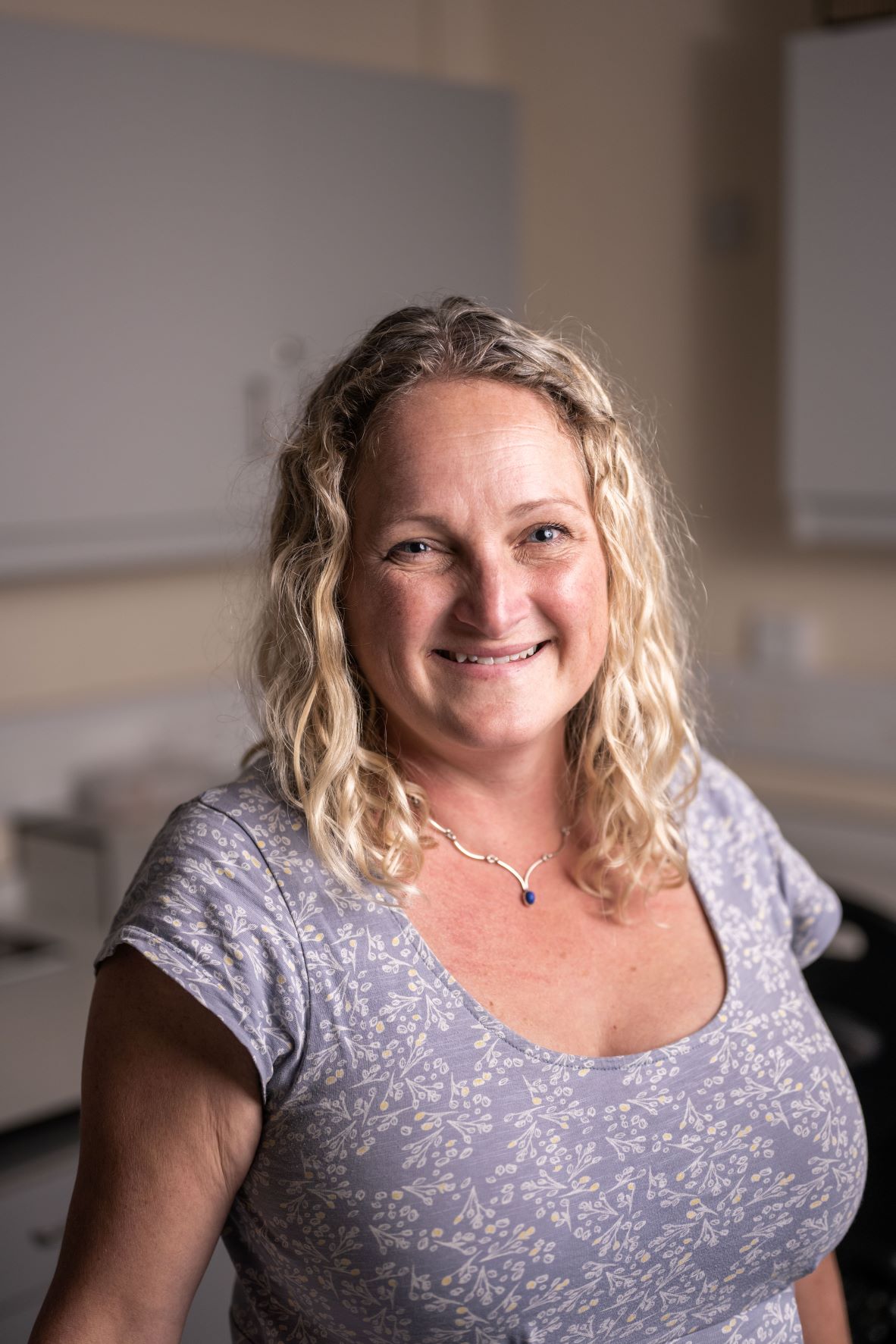
Dr Katie Smith
Postdoctoral Research Assistant
Dr Katie Smith
Postdoctoral Research Assistant
I’m a marine ecologist and my research focuses on understanding how marine communities can adapt to survive in a changing world. I currently work as a Postdoctoral Research Assistant in the Benthic Ecosystems and Environmental Change group supervised by Dr Dan Smale. My current research focuses on improving our understanding of the ecological and socioeconomic impacts of marine heatwaves in global coastal ecosystems.
Over the past >10 years I have worked extensively on examining the impacts of climate change and other environmental stressors on marine species both in the field and in the laboratory. Through past and current projects, I have studied both coastal and offshore environments covering tropical to polar regions.
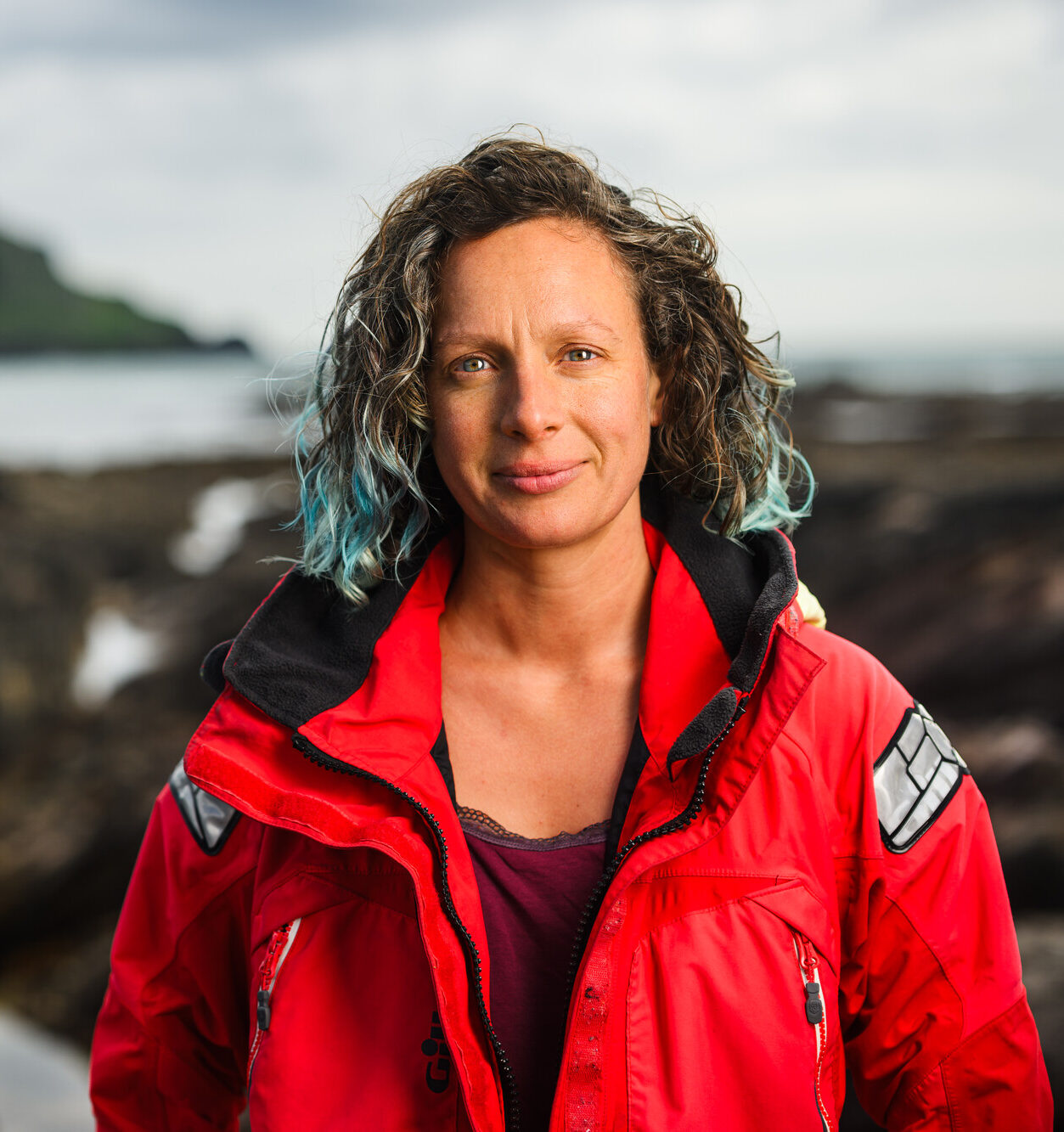
Cat Wilding, BSc, MRes
PhD Student
Cat Wilding, BSc, MRes
PhD Student
I’m a PhD student based at the MBA and Newcastle University. My research aims to develop kelp restoration techniques for the UK and is supervised by Dr Dam Smale and Dr Katie Smith (MBA), and Prof. Pip Moore (Newcastle). I will explore the feasibility of ‘green gravel’ methods for the UK, as a precautionary approach, using a combination of manipulative aquaria experiments, field surveys and laboratory components to optimise processes and inform best practice.
Prior to starting my PhD I worked for 7 years as an MBA Research Assistant focussing on seaweed farming, kelp ecology, community composition, and climate change impacts. I am also a scientific diver/supervisor and commercial skipper with >15 years experience from various marine conservation and engagement roles. I enjoy working at the intersection of fundamental ecology and applied research towards broader conservation goals.
